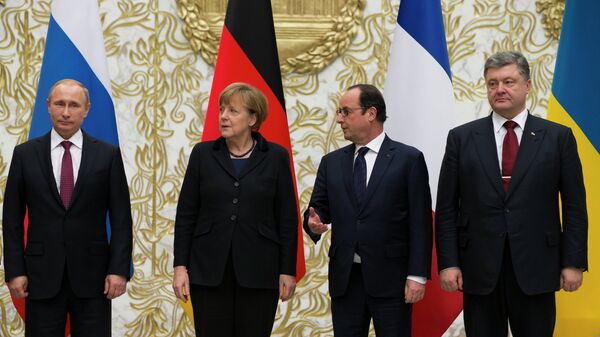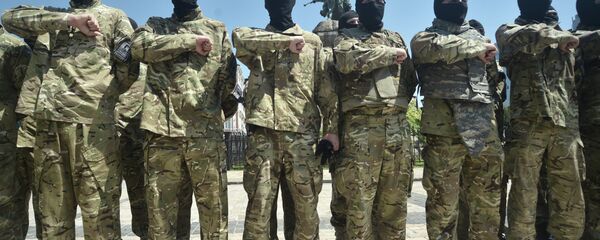WASHINGTON (Sputnik) — There is tension among European countries over France and Germany representing the entire EU in discussions to resolve the crisis in Ukraine and levy future sanctions against Russia, former US Ambassador and Special Representative to the EU John Cloud told Sputnik on Tuesday.
“The negotiations are not being done by the European Union, they are being done by certain members of the European Union, and we may have heard some less-than-happiness with that,” Cloud said.
Cloud referred to the ongoing talks between Ukraine, France, Germany and Russia, or the Normandy Quartet, over the implementation of the Minsk II peace agreement.
The Minsk agreements, signed in February 2015, stipulate establishing a ceasefire in eastern Ukraine, withdrawal of heavy weapons from the conflict zone and constitutional reforms in Ukraine.
During his visit, Cloud said he heard “some discordant note” from EU members, objecting to France and Germany representing the entirety of the Union in the Minsk talks.
European leaders have held that the successful implementation of the February 2015 Minsk agreements will determine the future sanctions policy towards Russia.
Existing sanctions were implemented based on unanimous agreement among EU states.
The impact of EU sanctions on Russia is felt disproportionately by different Union members whose exports and imports to Russia have been affected by the year-long sanctions regime.
The EU sanctions against Russia began in March 2014 When western leaders accused Russia of meddling in the crisis in Ukraine. Moscow has repeatedly denied the claims, and said moreover that sanctions are misplaced as well as counterproductive.
Total trade between the EU and Russia totalled more than $360 billion in 2013, according to European Commission statistics.




